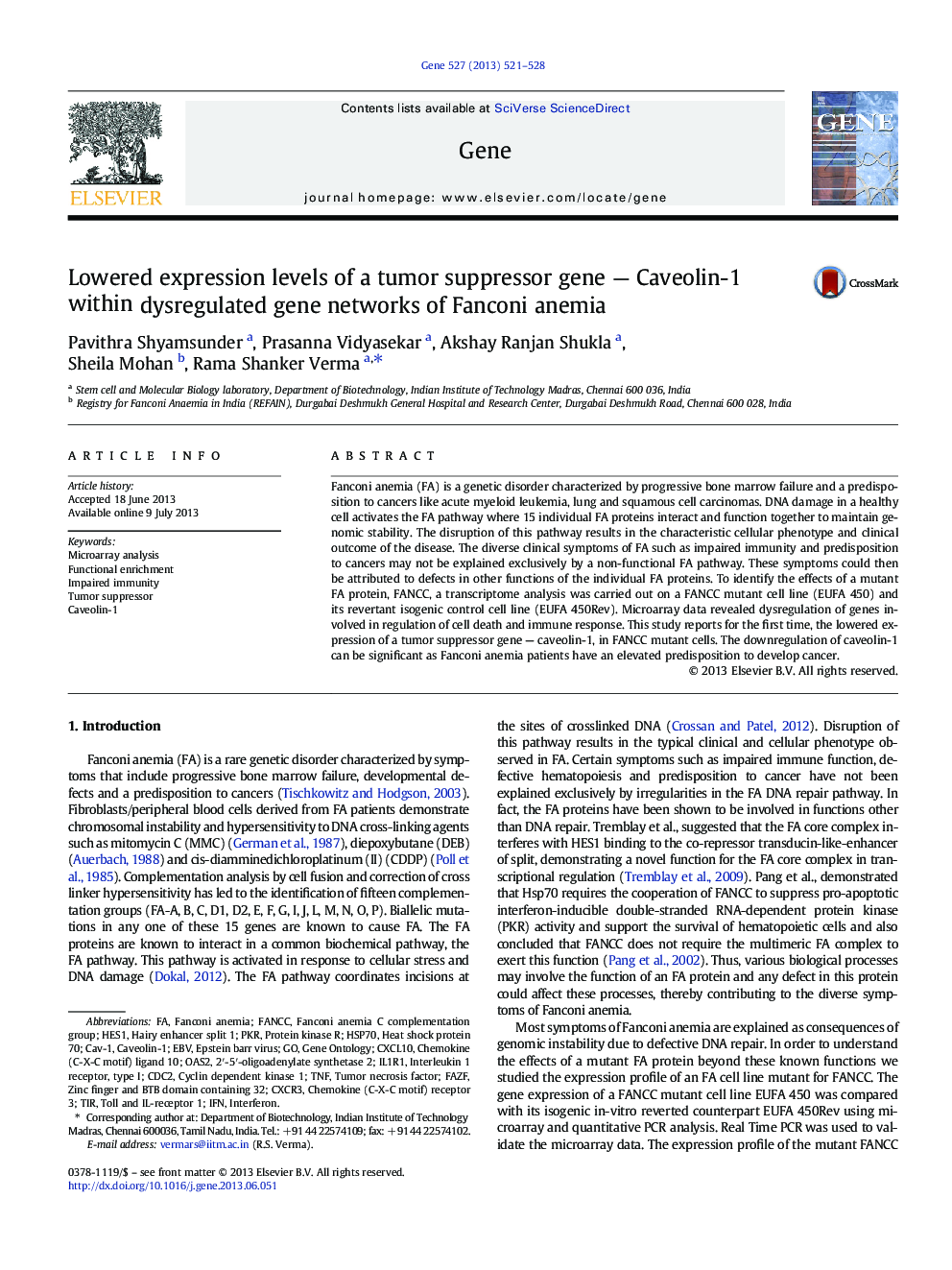| Article ID | Journal | Published Year | Pages | File Type |
|---|---|---|---|---|
| 2817011 | Gene | 2013 | 8 Pages |
•FA proteins may have functions additional to DNA repair.•847 genes were identified to be differentially expressed in FANCC mutant cell line.•Differentially expressed genes were modulators of immune response and cell death.•Downregulation of tumor suppressor gene, caveolin-1 in Fanconi anemia
Fanconi anemia (FA) is a genetic disorder characterized by progressive bone marrow failure and a predisposition to cancers like acute myeloid leukemia, lung and squamous cell carcinomas. DNA damage in a healthy cell activates the FA pathway where 15 individual FA proteins interact and function together to maintain genomic stability. The disruption of this pathway results in the characteristic cellular phenotype and clinical outcome of the disease. The diverse clinical symptoms of FA such as impaired immunity and predisposition to cancers may not be explained exclusively by a non-functional FA pathway. These symptoms could then be attributed to defects in other functions of the individual FA proteins. To identify the effects of a mutant FA protein, FANCC, a transcriptome analysis was carried out on a FANCC mutant cell line (EUFA 450) and its revertant isogenic control cell line (EUFA 450Rev). Microarray data revealed dysregulation of genes involved in regulation of cell death and immune response. This study reports for the first time, the lowered expression of a tumor suppressor gene — caveolin-1, in FANCC mutant cells. The downregulation of caveolin-1 can be significant as Fanconi anemia patients have an elevated predisposition to develop cancer.
